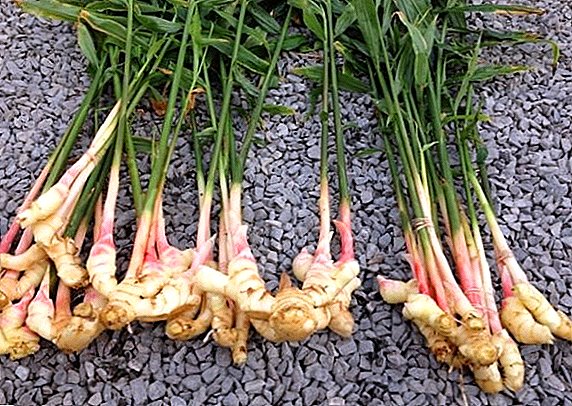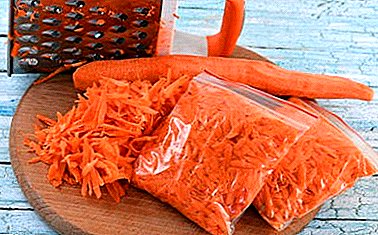
Proper and balanced nutrition of the baby and his mother is a big concern for the latter. While a woman is breastfeeding, her diet is limited in many ways, and all innovations are applied with a constant eye on the body's reaction. The kid's menu raises many questions, both in general and in particular, can it include Brussels sprouts, for example ?.
While the crumb eats only mom's milk, everything is clear. But the child grows, and there is a need to introduce complementary foods. As a rule, it all starts with a one-component vegetable puree. And the logical question is: where to start, how old and how exactly can you give brussels sprouts to children? About this, as well as about the nuances of the use of cabbage by mom - our article.
Is it possible to eat this vegetable for children?
Brussels sprouts for babies who are breastfed are not only necessary but also very useful. Pediatricians are advised to use it as the first complementary foods. Such recommendations are due to the fact that cabbage almost never causes allergies.
Brussels sprouts are rich in vitamins, proteins, minerals and fiber. This composition allows you to strengthen the growing body of infants.
IMPORTANT! Although Brussels sprouts are hypoallergenic and easily digested, initially it is worthwhile to introduce potato and squash puree into the child’s diet, and then cabbage.
From what age give babies?
For the first time, a child under the age of 1 year old who is on the GW, on the recommendation of pediatricians, may try mashed Brussels sprouts as early as 5.5 months.
 For children whose diet consists only of mixtures, feed is given a month earlier, that is, in 4.5 months.
For children whose diet consists only of mixtures, feed is given a month earlier, that is, in 4.5 months.
When can I give vegetables to premature babies? Them Doctors advise to try mashed cabbage only at 8 months.
Should start with 1 teaspoon of soup-puree in the morning. Then, throughout the day, carefully monitor the reaction of the crumbs.
If a new product does not have a negative impact on the body, then gradually you can increase the portion.
Is the product allowed to nursing mom?
The diet of a young mother who feeds her baby with breast milk can and should be a variety of vegetables, including Brussels sprouts. The opinion of many moms that the whole cabbage is dangerous for the digestion of a little man is wrong. So how exactly Brussels sprouts cannot harm a child’s body if consumed boiled or stewed.
In the mom's menu, this vegetable is necessary for the same reason as for the child's diet - a rich vitamin and mineral complex. Opinions of experts on the introduction to the diet of vegetables are different. Some doctors recommend starting to use no earlier than the child turns 2 months.
Others call other periods - 1 month, and still others think that it is enough to wait 3 weeks after birth and the baby is ready to try Brussels sprouts with mother's milk. Consume the product only in boiled, baked or stewed form.
TIP! You should start with 1-2 teaspoons and gradually increase the portion if the baby’s reaction is normal.
Benefit and harm
The composition of the Brussels sprouts includes:
- vitamins of groups A, B, C, PP;
- Vitamin K helps to normalize blood clotting and participation in the formation of protein;
- squirrels;
- carbohydrates;
- fiber and a little starch.
Also The cabbage contains amino acids such as:
- alanine;
- arginine;
- leucine;
- isoleucine;
- methionine and others.
 To trace elements:
To trace elements:- iron;
- zinc;
- manganese;
- copper;
- potassium;
- phosphorus;
- magnesium;
- iodine.
The properties of Brussels sprouts that are useful for mom and baby include that she:
- improves immunity, helps in the fight against viruses, infections;
- charges the body with energy;
- improves eyesight;
- minimizes the possibility of getting cancer, heart failure and hypertension;
- beneficial effect on blood clotting;
- helps to overcome pancreatitis;
- improves metabolism;
- prevents the accumulation of excess weight;
- improves liver function;
- cleans the biliary ducts;
- lowers cholesterol.
In children, cabbage normalizes digestion. The high calcium content allows you to form a strong muscular and bone skeleton. Among the negative effects can be noted the effect on the thyroid gland. A number of cabbage components interfere with the thyroid gland to absorb iodine.
Contraindications
Despite its usefulness, Brussels sprouts have a number of contraindications. It is not recommended to include in the diet of people suffering from:
- increased acidity of the stomach;
- enterocolitis;
- intestinal cramps;
- inflammation of the gastrointestinal tract;
- thyroid problems;
- high content in the body of vitamin C;
- with individual intolerance to the components.
At an early stage, this vegetable should not be included in the child’s menu if it has:
- colic;
- flatulence;
- chronic gastritis with high acidity.
How to choose?
Buying cabbage in the store, always worth paying attention to the following nuances:
- leaves should be clean, smooth, without stains;
- cabbage tips should be evenly green with no yellow spots;
- try to buy only fresh vegetables from trusted vendors.
Step-by-step instructions on how to make complementary foods.
 The first lure is best to start with a one-component vegetable puree. It is best to give products cooked by yourself. In the preparation of mashed potatoes at home there are no difficulties.
The first lure is best to start with a one-component vegetable puree. It is best to give products cooked by yourself. In the preparation of mashed potatoes at home there are no difficulties.
For this you need:
- Take 1-2 (if the first sample is a vegetable) or 5-6 coaches (if cabbage is already familiar to a child).
- Wash thoroughly.
- Put to boil.
- After the degree of readiness has been determined, the cob is removed from the broth.
- Vegetables are carefully ground on a blender, until smooth.
- Puree ready.
Like many vegetables, Brussels sprouts are rich in vitamins, microelements and amino acids. With moderate consumption, the whole range of nutrients will have a beneficial effect on the body, will be an excellent means of preventing diseases.












